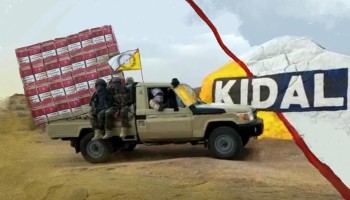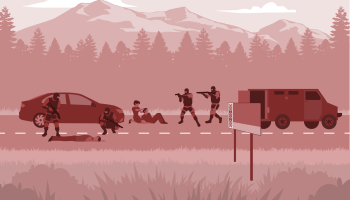“There is a clear political will and support, and we should end organized crime by pressuring local and national crime bosses,” said Prosecutor-General Boris Velchev, at a press conference in Sofia after the Interior Ministry’s first-ever national meeting.
Bulgaria’s location next to the Black Sea and Turkey makes it an ideal spot for criminals trading in drugs and humans, or smuggling other goods. But it was the end of Communism, the wars and sanctions in neighboring Yugoslavia, and a series of ambivalent governments that turned the country into a major haven for organized crime. In spite of this, Bulgaria was allowed into the European Union in 2007. By the next year, crime and corruption concerns prompted the Union’s executive arm to freeze hundreds of millions of euros in aid to the country. A new center-right government came to power in July last year; its efforts to fight organized crime have resulted in the restoration of some aid.
Time Has Been Lost
Despite some of the progress, the country’s top police official said Monday that cracking down on crime would have been much easier to do a decade ago.
“We are facing difficulties because of all the time that has been lost,” said Interior Minister Tsvetan Tsvetanov. He said that between 250 and 300 people make up the backbone of organized crime in Bulgaria, and that these people will be the focus of police efforts.
The strategy, according to Tsvetanov, involves information sharing on an unprecedented scale. All regional police directorates and prosecutors are to give monthly progress reports to the Interior Ministry. Regional police will have to improve communication with each other. Regional police and prosecutors have already begun meeting regularly to identify criminal leaders and to share intelligence.
And officials said there would be ramifications for police and prosecutors who fail to get results. Prime Minister Boiko Borissov, who was also at the meeting Monday, gave the example of one regional police director who said that he hadn’t arrested two local drug bosses because “they had great potential.”
“I told Tsvetanov to write back to this head of the police directorate and tell him that his own potential was very low, and he must get his release papers ready.” Borissov said.
--Beth Kampschror





